Welcome to another issue of The Newport Cornucopia where we dig through the newspapers archives for interesting news articles and adverts. All articles are posted verbatim and most headlines are original (headlines in quotes are my own).

Lliswerry House
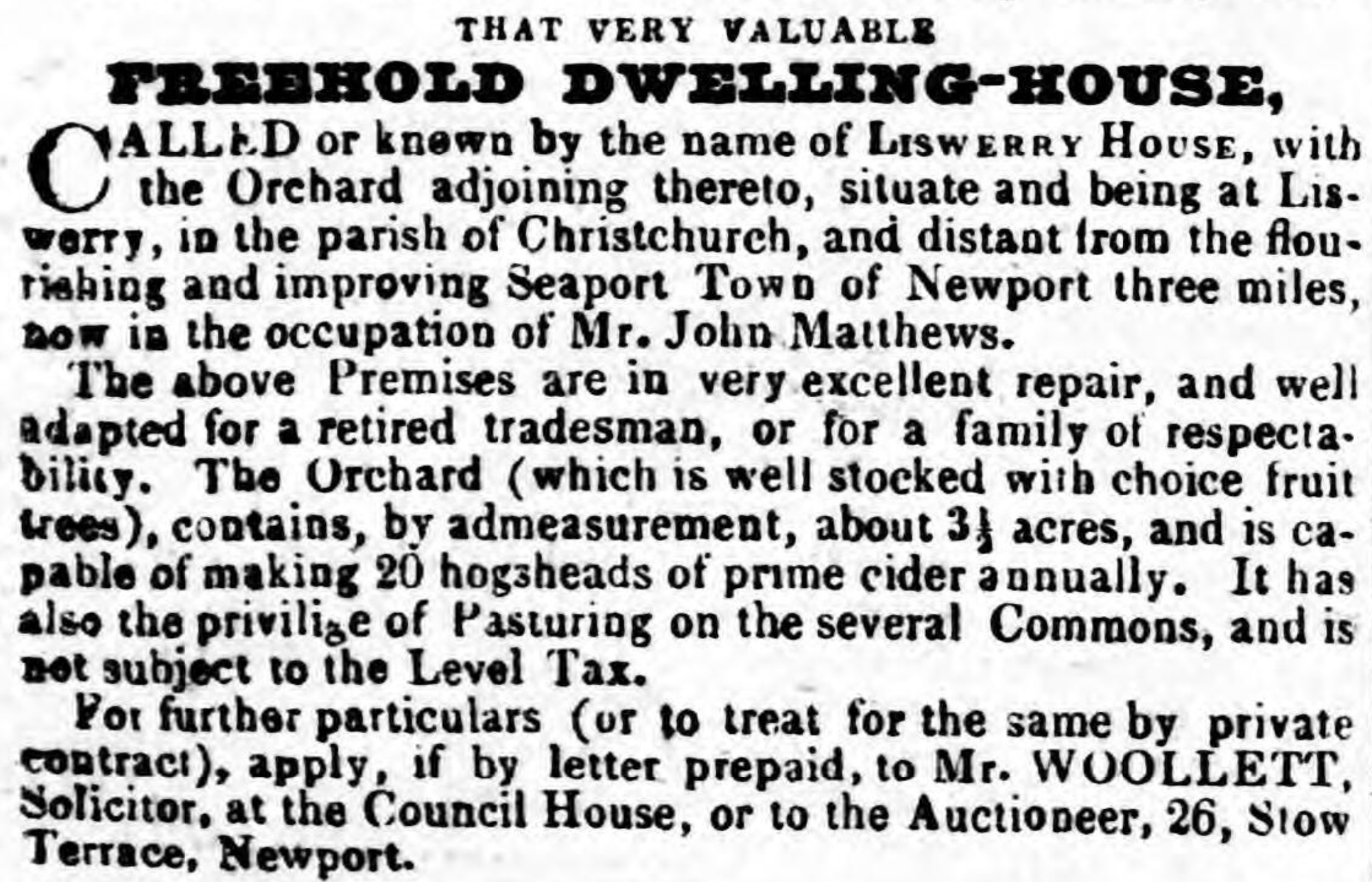

'A Need for Lighting on the Marshes Road'
To the Editor of the Monmouthshire Merlin.
Sir, Through the medium of your columns, I beg to call the attention of our Town Commissioners to the state of the Marshes' Road, which (unless the moon lends its friendly aid) is, from the setting of the sun to the rising of the same, in a state of total darkness added to which the scavenger has kindly placed, and for some days past left, sundry heaps of mud on the road side, for the benighted traveller to fall in. This state of things should not be allowed to remain.
True, there are two public lamps after pacing the canal bridge; but they are no more use without lights in them than Paddy's lantern was.
The number of inhabitants now residing on that road, make it imperatively necessary to have lights at night. At present their wives and daughters have no protection against insult or injury, for if perpetrated, the darkness would effectually prevent the identification of the parties. Trusting the commissioners will remove the cause of complaint, (the inhabitants being politely compelled to subscribe to the rate, injustice ought to have some of the benefit),
I remain, Sir, your obedient servant,
AN INHABITANT.
— Monmouthshire Merlin, 12th December, 1846

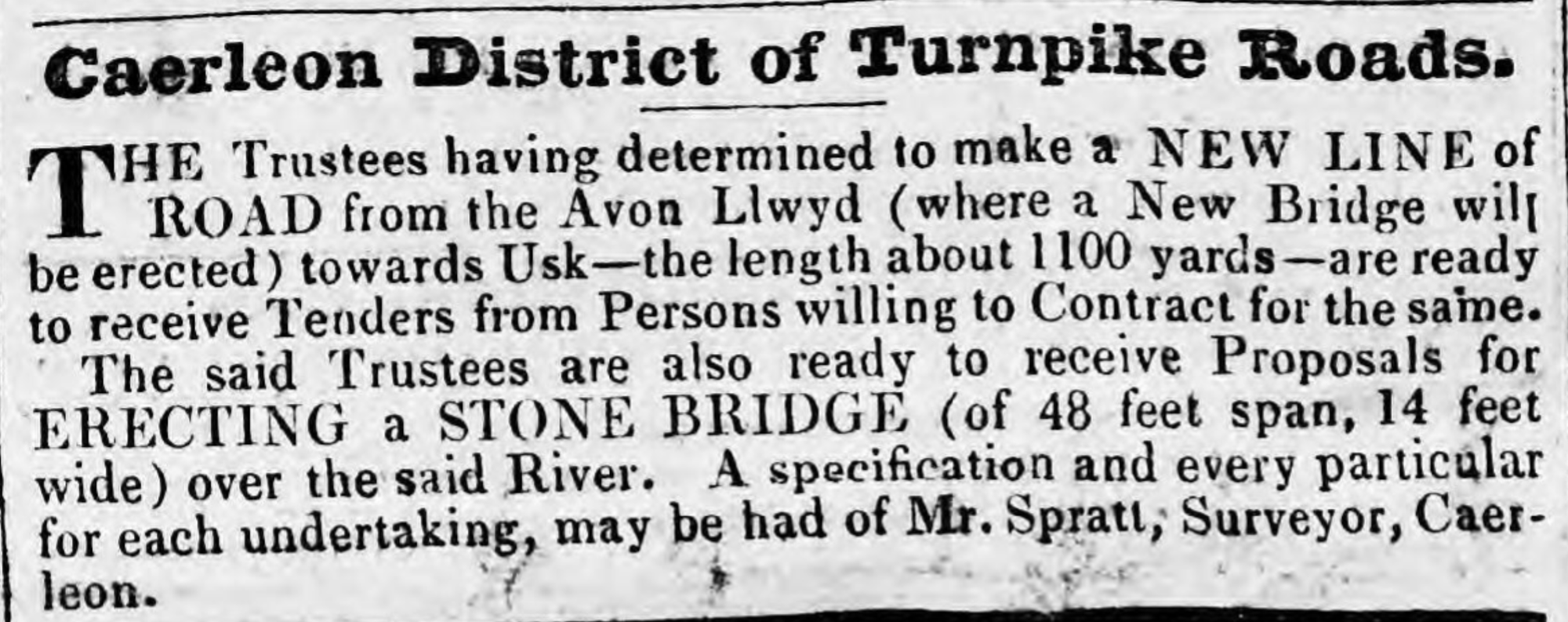
The bridge mentioned in the article as you leave Caerleon on the Usk Road.
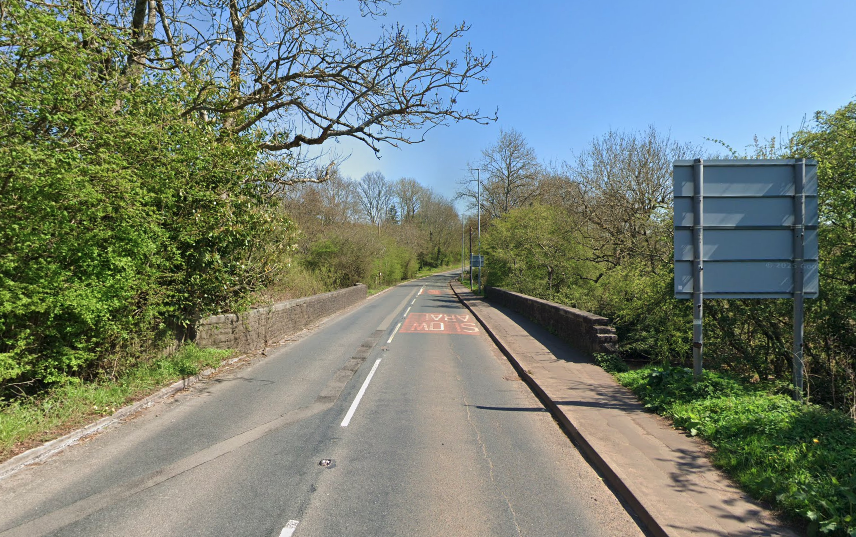

'Stealing Sheep'
David Griffiths (who resides at Liswerry in the palish of Christchurch, and keeps a lime-kiln), was placed at the bar, charged with stealing sheep, the property of several persons. The prisoner had the appearance of a farmer's labourer and during his examination, the office was crowded with persons from the neighbourhood of prisoner's residence, and from the vicinity of those places from which sheep have been recently missing.
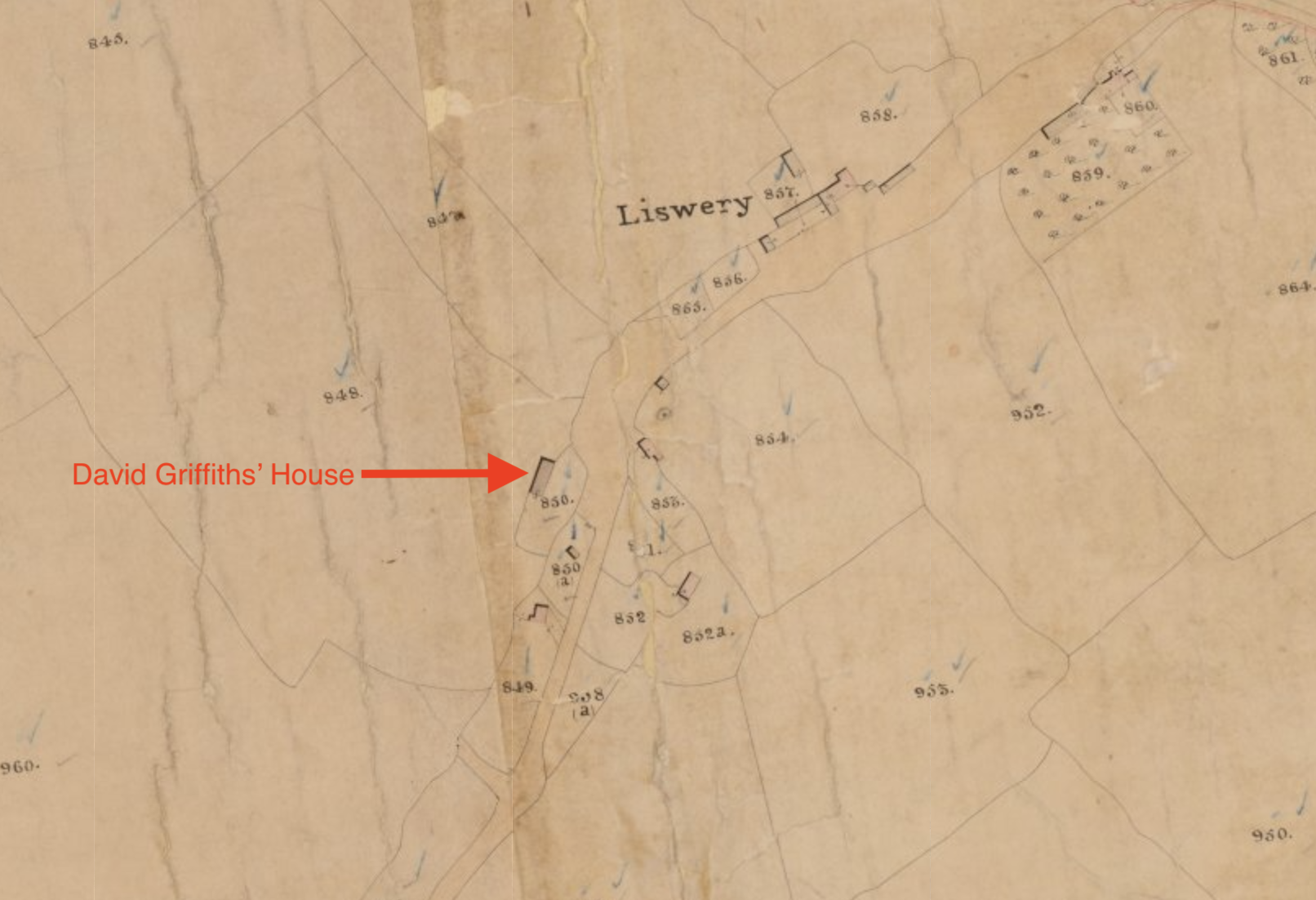
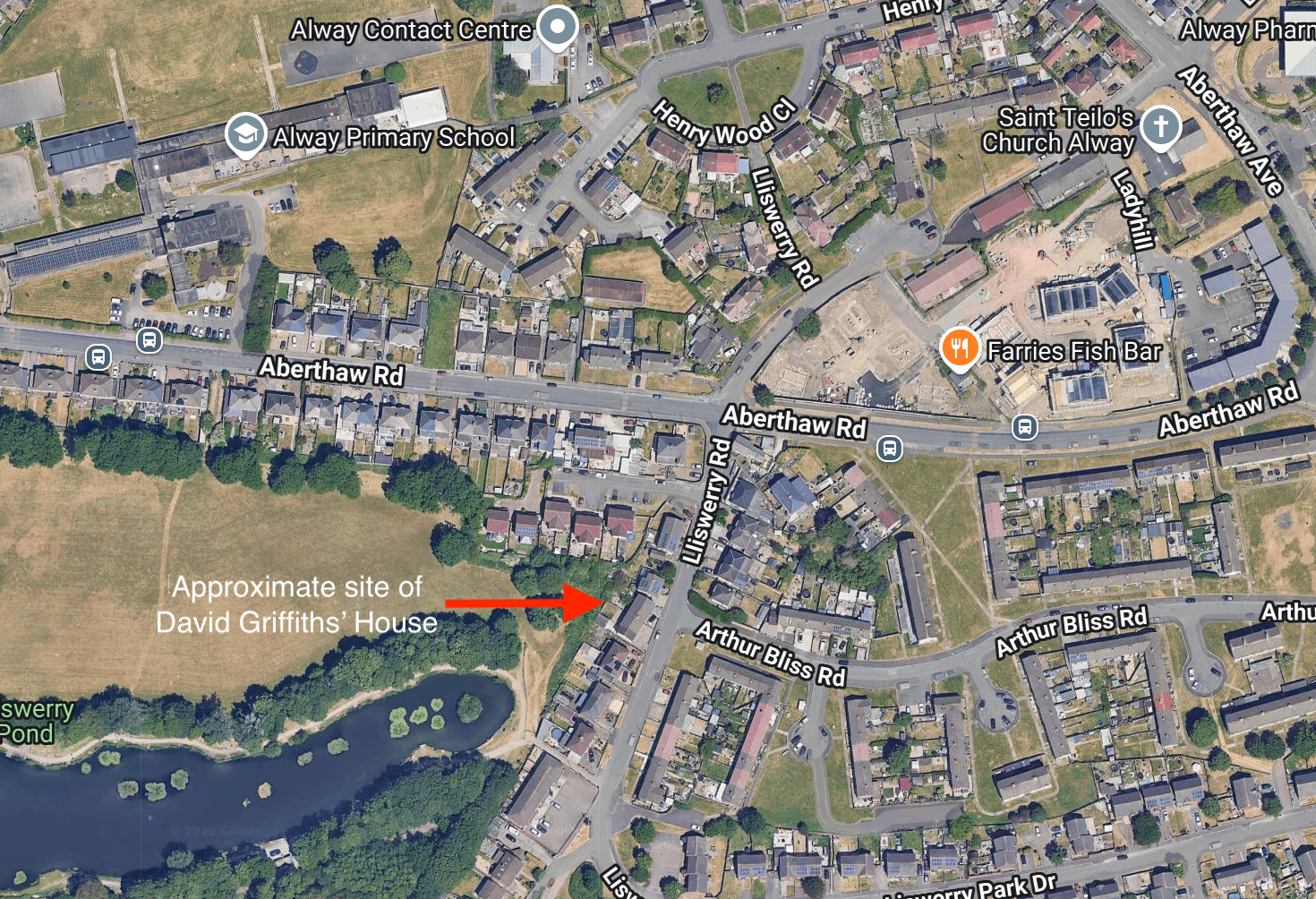
Tithe map of 1841 showing the location of David Griffiths' house and the approximate location today.
The first witness called was John Jones, who stated that he was a farmer, living at Langwm, near Usk and on the morning of Tuesday, the 6th inst., he missed a yearling ewe from his field, which had been-taken during the previous night it was marked J.J.on the near shoulder. On Thursday, the 8th, he went in search of the ewe, and in Newport he got intelligence which induced him to go to Liswerry on the following day, and there he saw his ewe in a field near a lime-kiln with several other sheep; his brand had been cut out, and in the place where it had been was a circle, and a spot in the centre in pitch, but the original letters J.J., were still discernible under the recent mark; but besides the brand, he could identify his sheep by certain black marks behind the ears.
The witness them returned to Newport, and procured a warrant against prisoner and another; but when he returned to Liswerry, he found that all the sheep had been branded with the letters D.G., while he had been away. Prisoner knew witness's land, as he had worked in his neighbourhood and until lately, prisoner's mother and two brothers lived within a mile of witness's farm. When prisoner was taken into custody by the officer, and before he was told on what charge he was arrested, he said he had taken the sheep in exchange for a piece of wheat from his brother. Witness's sheep is now in the possession of the officer.
Nicholas Jenkins, a farmer residing at Great Olway, near Usk, was next called and he stated that he lost a sheep from his land, on Tuesday or Wednesday, the 6th or 7th inst. It was pitch marked with the letter J., in a ring; the same sheep is in the possession of the officer; but witness's mark is entirely cut out, and the sheep is branded on the other side with the letters D. G.
John Thomas, bailiff to Mrs. Hannah Jones, of Mardee, identified another of the sheep, in the possession of the officer, which had been taken from prisoner, as one which had been taken from his mistress's land on the night of Monday the 5th. Mrs. Jones's brand had been cut out, and in place of it, a ring with a dot in it had been put the letters D.G. were also marked on the sheep since it had been taken.
Thomas Dunn, maltster, residing at Usk, identified another, which he believed to be one he had missed from his land, last week. His brand had also been cut out, and D.G. substituted.
James Young, landlord of the Royal Oak Inn. Christchurch, deposed that prisoner was a lime burner, residing at Liswerry, and that he had a field adjoining the kiln. On Friday morning he accompanied Jones (the first witness) to prisoner's field, and after examining the sheep which were there, Jones said "It's all right, my sheep is there." Jones then went away to a magistrate witness stayed to watch the sheep, and soon observed prisoner, his brother Isaac, and a person named Llewellyn, a butcher, go into the field and examine the sheep. After they came out, the butcher told witness that he had been dealing for the sheep. Prisoner and his brother then drove the sheep from the field to a folder near prisoner's house; and when the sheep came out they were branded with the letters D.G. Witness saw prisoner and his brother with pitch pots in their hands. Witness asked prisoner the price of the sheep, and he replied that he would not sell them till after Christmas.
Edward Hopkins, superintendent of police, deposed that he had a warrant to apprehend prisoner and his brother Isaac, on a charge of sheep stealing. He went to prisoner and asked him where were the sheep, and he said in the meadow the prisoner accompanied witness to the meadow, when he took possession of nine sheep, which he still had in his custody prisoner told him that he had taken them in exchange for a piece of wheat which he chopped with his brother. Witness then went to the house of prisoner's mother, at Langeview in search of his brother Isaac, who escaped while witness was in the house.
A person named Carter, called by the prisoner, deposed that he saw Isaac Griffiths, on Thursday morning, about eight o'clock, driving the sheep on the road leading from Newport to Christchurch.
Llewellyn, a butcher, deposed that on Friday morning, Isaac Griffiths came to him, and asked him to come and value the sheep, as he was about to exchange them with his brother David for a piece of wheat. Witness looked at them, and valued the nine at £12.
The prisoner, in his defence, said he had taken the sheep from his brother in exchange for a piece of wheat, as had been stated by the witnesses, not knowing at the time that they were stolen.
Mr. Coles said that the magistrates were of opinion, that the evidence was not sufficiently strong to warrant them in committing him for stealing the sheep; but they would hold him bail on the charge of receiving them, knowing them to be stolen because he must have been sufficiently aware of his brother's circumstances to know that, being a day labourer, he had no means of coming honestly to the possession of nine.
Prisoner was then ordered to enter into his own recognizance of £50., and find two sureties of £25. each, to take his trial at the Sessions.
— Monmouthshire Merlin, 17th August, 1839



Newport Queen of Trumps
On Monday last a match against time came off on the Chepstow road. Mr. John Kinson, innkeeper's, mare Queen of Trumps was backed, against old Chronos, to carry her master, trotting three miles, walking three miles, and galloping three miles, within 65 minutes. Betting was in favour of time, but the Queen won easily in 61 minutes, carrying 13st. 71b. A good dinner was afterwards provided on the occasion, at the Noah's Ark, when Red and Blue sat cheerfully down together.
— Monmouthshire Merlin, 26th September, 1835


A Daring Robbery
At four o'clock on Saturday evening last, some person or persons entered the house of Mr. Davis, of Liswerry, while his wife and servants were out milking, and he was sleeping in his arm chair. They stole the following articles; with which they got clear off: a large piece of beef, a loaf of bread, a piece of bacon, one pound of butter, and a large piece of cheese.
— Monmouthshire Merlin, 20th July, 1839
'Fatal Accident Near Maindee'
Elizabeth Keene, wife of Wm. Keene, butcher, of Nash, attended Newport market, on Saturday last, which she was in the habit of doing. It appears that on the evening of that day she left the town on horseback in a state of intoxication, riding by the 'side of several' carts, one of which was drawn by oxen the drivers of the teams frequently struck the horse on which she rode and when near Maindee, about a mile and a half from Newport one of the drivers named Rosser, struck the animal with a whip, when he sprang forward and threw the woman, by which, we regret to state, she was so much injured as to cause death, the spine being broken and her liver ruptured. She was about 49 years of age, and has left three children the youngest only three years old. An inquest has been held on the body and a verdict of manslaughter returned against the boy, Rosser.
— Monmouthshire Merlin, 5th December, 1838
'Cleaning a Horse on the Highway'
Isaac Brown, earthenware dealer, Market-street, was charged by the improvement surveyor with cleaning his horse on the highway, on the 22nd ult., thereby causing a dangerous obstruction, contrary to the 27th bye-law of the borough.
This case excited some attention, from an accusation made in the case against the surveyor, of having laid the complaint at the instigation of one of the commissioners (Mr. Townsend). The case was fully proved by the surveyor, and the defendant was fined 16s. 6d., including costs.
The surveyor then addressed the Bench, and said he considered it his duty publicly to state, that Mr. Townsend's name had been most unjustifiably used in this matter, as that gentleman was not aware the offence had occurred—much less that an information had been laid, until subsequently hearing of it.
The magistrates observed, that supposing Mr. Townsend to have instigated the case, he would but have been doing his duty as a commissioner. Defendant was also informed by the Bench, that Mr. Salter, in the discharge of his public duties as surveyor, would be protected by the magistrates for the appointment of officers, and the institution of laws, would be but a waste of public money and time, if they were not put to their proper uses for the welfare of the town. Defendant paid the money.
Mr Townsend, at the close of the above case, applied to the Bench for protection, as lie considered, from the violence of the language, and the threatening tone and abuse, adopted by Brown against him, rendered it unsafe for him to go without firearms. The defendant was thereupon bound over to keep the peace towards her Majesty's subjects, and especially Mr. Townsend, for the space of three months.
— Monmouthshire Merlin, 9th October, 1847
'A Strange Looking Young Female'
Jane Fudge, a strange-looking young female whom the police termed "a navigator's razor," was charged with stealing a pair of boots, the property of that victim of thieves, Luke Homer. The case was fully proved, and the prisoner was committed to take her trial at the sessions. Before leaving the court, she flew at the prosecutor with tigrish violence, but was prevented from doing any injury to him, by the united strength of four sturdy policemen, who succeeded in victoriously bearing her off to the cell.
— Monmouthshire Merlin, 9th October, 1847
'Selling Beer Next to the Police Station'
Henry Meek, residing almost within the teeth of the police station, was fined 5s. and costs, or one month's imprisonment, for selling beer in his house without a license.
— Monmouthshire Merlin, 9th October, 1847

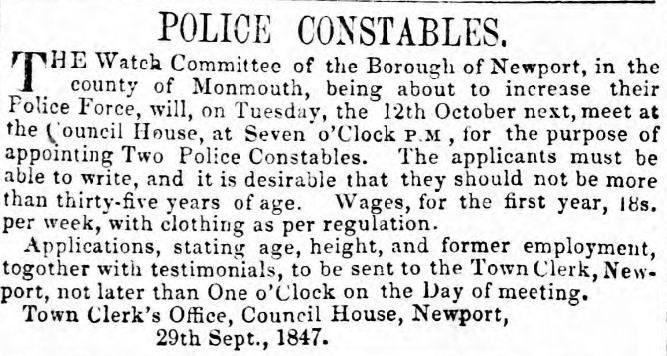

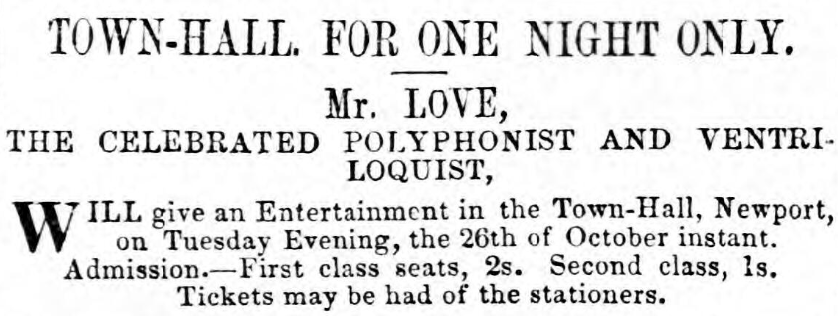
Mr Love, full name William Edward Love, was born in London in 1806 and by the age of 12 was imitating the noises made by machinery, musical instruments, beasts, birds and insects.
From around 1826 he began touring England, France and Ireland and appeared at the Newport Town Hall in October 1847.

In an article in the Monmouthshire Merlin, Mr Love was once described by the New Orleans Bulletin as being someone who can represent whole families from
"The infant, muling and puking in the nurse's arms,"
to the
"Last scene of all, that ends this strange eventful history, sans teeth, sans eyes, sans taste, sans everything."



'Firearms Accident'
We lately alluded to the frequency and fatality of accidents from fire-arms, this season, and have now the painful duty to record another circumstance of a serious nature from the same cause. On Tuesday morning last, Mr. Wm. Brewer, eldest son of William Brewer, Esq., surgeon, of Newport, went to sport in the parish of Henllis, and while firing at game, his gun (a double barrel) burst, shattering his left hand in a dreadful manner. His servant was with him, standing on his right, and escaped unhurt. This occurrence has thrown a gloom over all who knew this much esteemed young gentleman, and has afflicted his family with extreme anguish. We have, however, the pleasure to learn the sufferer js doing as well as can he expected from the nature of the accident.
— Monmouthshire Merlin, 3rd October 1835

Appalling Occurrence on the Monmouthshire Tram Road
Early on the morning of the 5th ult., as the first team was coming down the road near Risca, the conductor observed a team at a parting, in great confusion, and upon closer inspection, the body of a man presented itself with the head nearly severed from the trunk by the tram wheels beside the tram, at a short distance from the mutilated body, a man was leaning in a sitting position, apparently asleep, and near to him a stream was issuing from a puncheon of rum. The melan- choly and degrading cause of the horrid spectacle then became apparent: the men had tapped the puncheon of rum, which was consigned to the landlord of the Greyhound Inn, Tredegar, and drunk the stolen liquor till they were reduced to a state of brutal drunkenness, in which one wretched man was hurried into eternity, and the other reduced to a disgusting and helpless condition.
A surgeon was soon in attendance, when, by the timely use of the stomach pump, such relief was afforded to the drunkard as to give hopes of saving his life. It is conjectured, from appearances, that the deceased fell on the road some distance from the parting, and the wheel coming in contact with his body, forced it on to the parting, where the neck was nearly severed from the shoulders. We do not remember, during our experience as journalists, so melancholy, so heart sickening, so awful an instance of the dire effects of drunkenness as the above tragical event which will, we trust, be long remembered with salutary dread by the labouring classes.
— Monmouthshire Merlin, 3rd October 1835


In 1912, a film adapation of the play Madame Sans-Gêne was shown at the Picturedrome on Commercial Street starring Madame Rejane. This version was the second film adaptation with the first being made in 1900.
Madame Sans-Gêne was an historical comedy-drama set in 18th century France.
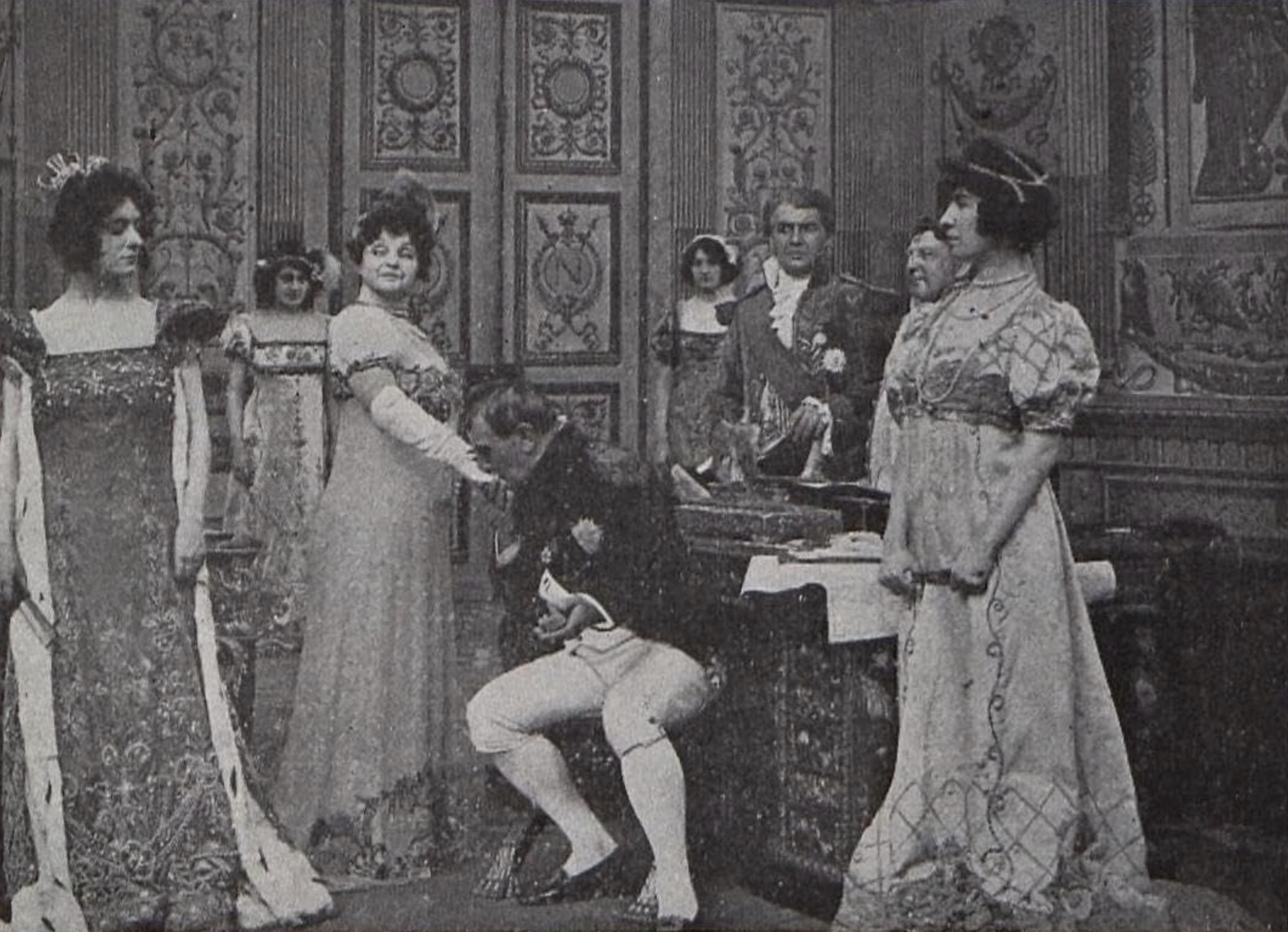

Fine Lamb
An. uncommonly fine lamb has just come into the possession of Mr. Hugh Morgan, butcher, 22, Commercial-street, and may, be seen at his shop. We understand that it is from John Logan, Esq., Maindee House, and Mr. James Speary, Pontvane Farm, Christchurch. The animal is unusually large for so early a period of the season.
— Monmouthshire Merlin, 27th February, 1858



'Fire at Duckpool Farm'
Between eight and, nine o'clock on Wednesday evening, a fire was discovered in a stable on Duckpool Farm, in the parish of Christchurch and in the occupation of Mr. Lloyd, of the King's Head. Hotel, in this town. Superintendent Huxtable, with., the fire-engine and a detachment of police, were promptly on the spot, and completely extinguished the fire, which, however, had previously been got under, in part, by the men upon the farm. The damage is estimated at about £20. The spark from a candle is supposed to have fallen upon and ignited some straw.
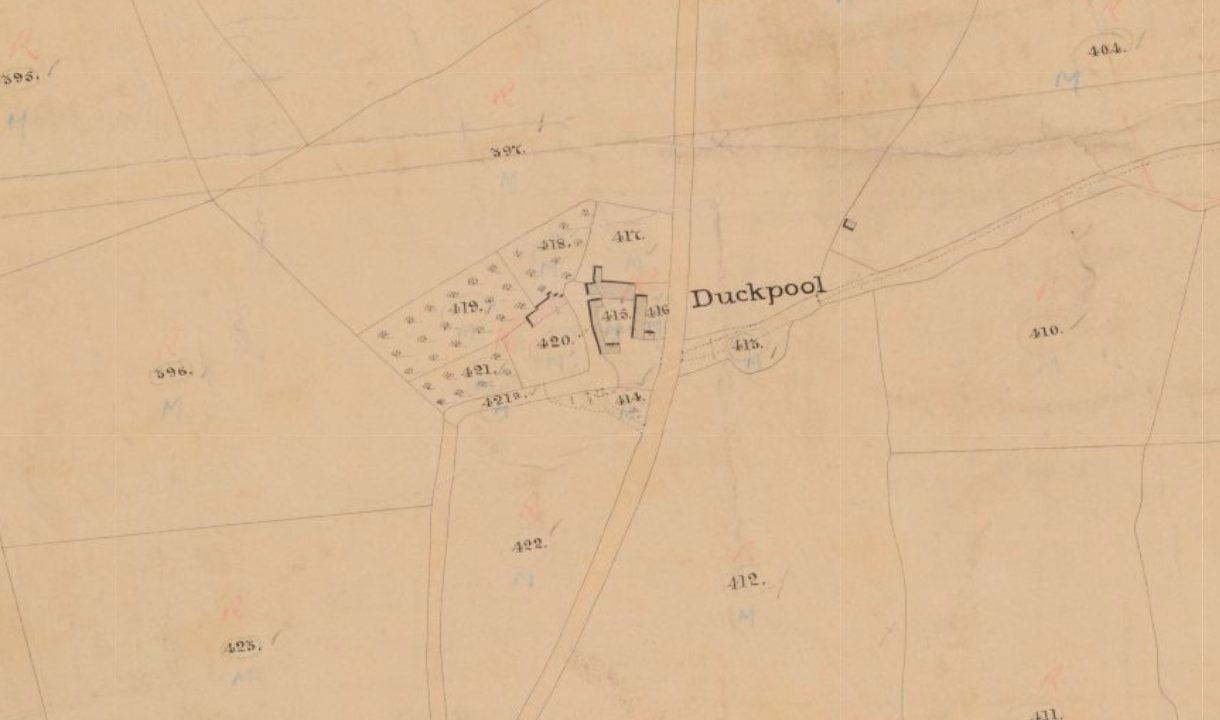
— Monmouthshire Merlin, 27th February, 1858

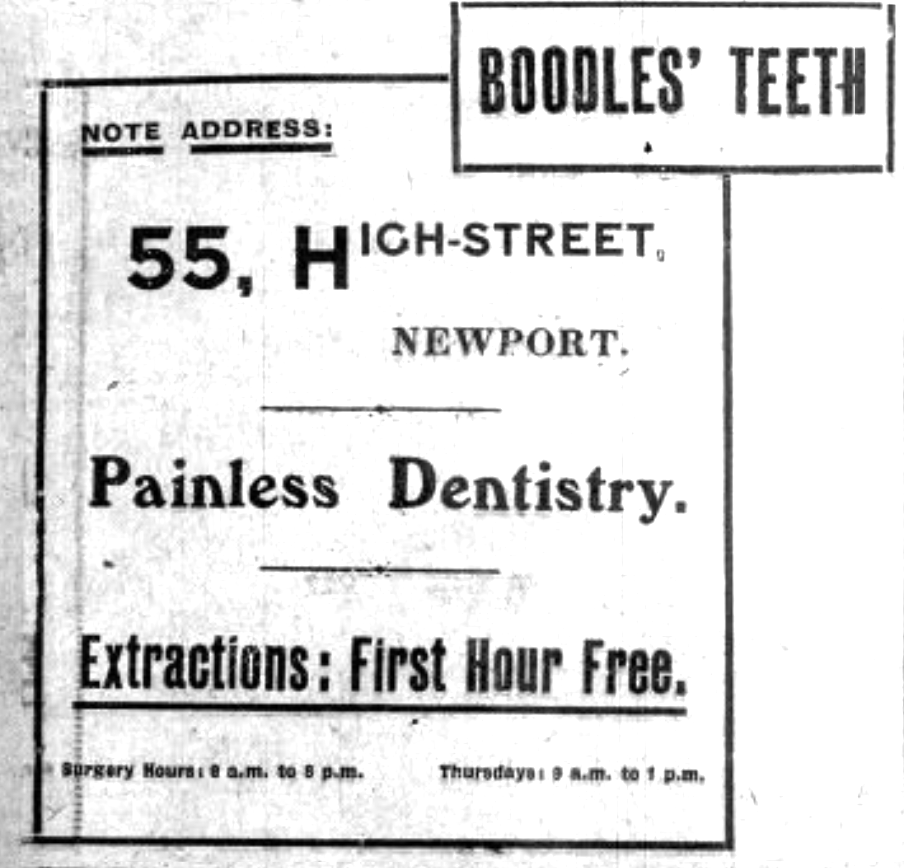


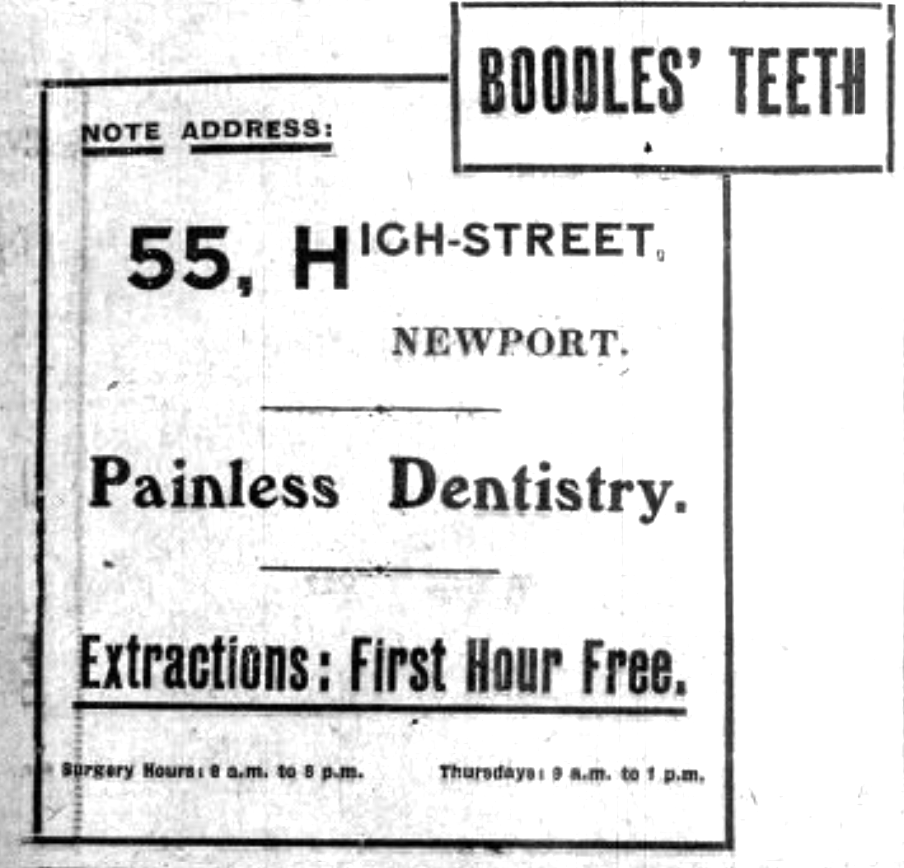
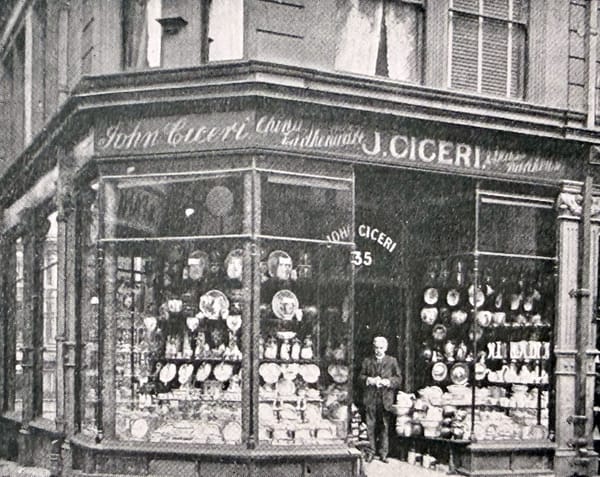
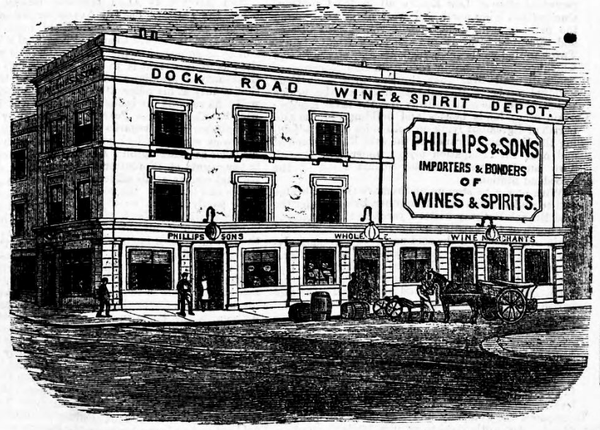
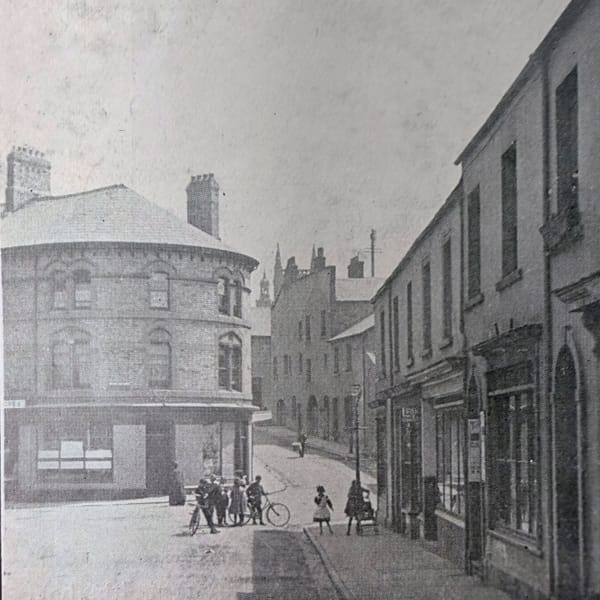
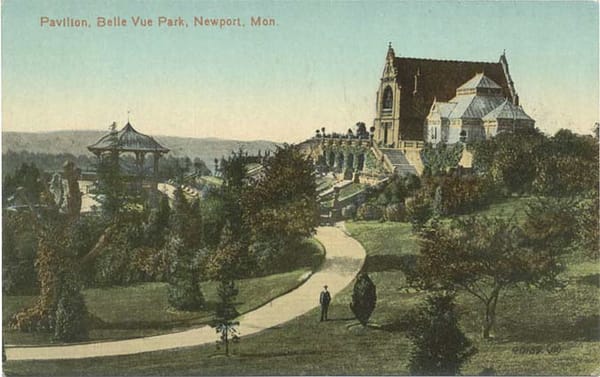
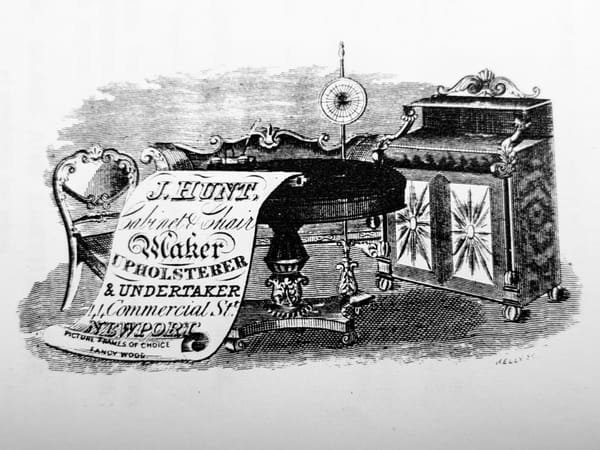
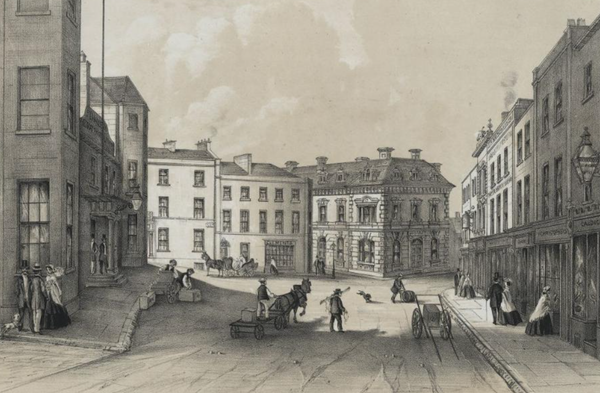
Member discussion